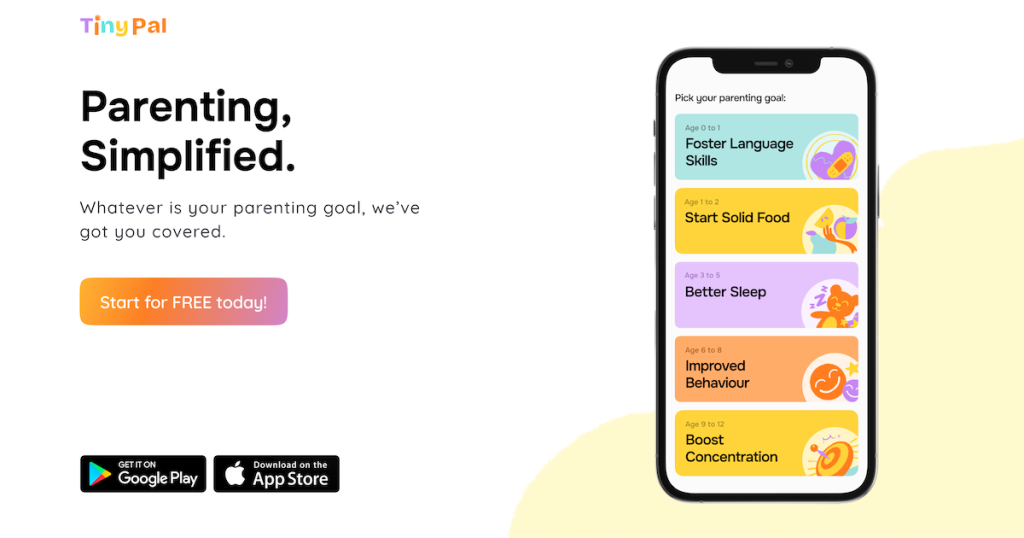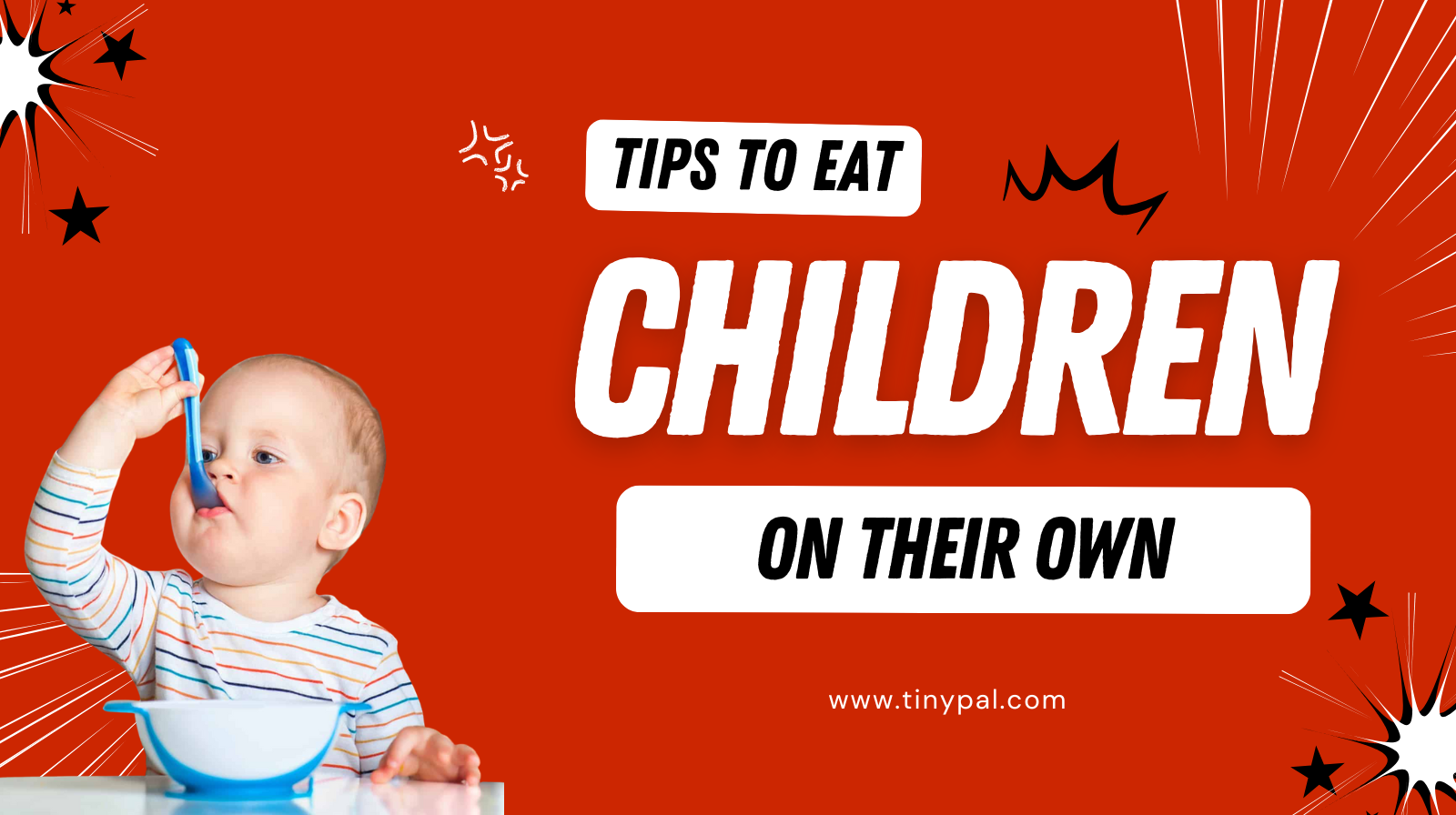12 Proven Tips to Help Children Eat on Their Own: A Parent’s Guide to Raising Confident, Independent Eaters
It started with a small spill.
Riya handed her 2-year-old son, Aarav, a spoon full of rice. He grabbed it eagerly… and dropped it instantly. The food splattered across the floor, and Riya froze — torn between frustration and laughter.
“Maybe he’s too young,” she thought.
But what she didn’t realize was that this moment — the messy, clumsy one — was a milestone.
Aarav wasn’t just learning to eat. He was learning to be independent.
And that’s the heart of today’s parenting journey — helping children not just grow up, but grow confident.
In a world full of information overload, parents don’t need more instructions — they need personalized guidance that adapts to their child’s growth.
That’s where the TinyPal Parenting App comes in — your AI-powered parenting companion that guides, not controls, helping you raise emotionally balanced, confident children who thrive — one spoonful at a time.
Table of Contents
1. Understand Why Independent Eating Is So Important
Eating independently isn’t just a mealtime skill — it’s a confidence-building process.
When children learn to feed themselves, they develop:
- Fine motor skills
- Hand-eye coordination
- Decision-making ability
- Emotional self-regulation
TinyPal’s parenting philosophy focuses on empowerment through empathy — helping parents turn everyday routines like eating into opportunities for learning independence.
“Every bite they take on their own is a step toward confidence.”
— TinyPal Parenting Insight
2. Start Slow: Small Wins Create Big Progress
Every milestone begins small.
Start by letting your child hold their spoon during mealtime. Even if they barely manage, they’ll feel proud.
TinyPal’s AI guidance helps you recognize readiness signs such as:
- Curiosity toward utensils
- Attempting to feed themselves
- Showing frustration when you feed them
Encourage, don’t rush. Each micro-attempt builds their confidence.
3. Make Meals Predictable
Children learn best through routine.
Set meal and snack times consistently — same chair, same setup. Predictability builds emotional security.
TinyPal suggests creating a “Mealtime Ritual” — a short calming routine before eating (washing hands, setting the plate, saying a small thank-you).
This primes the child’s mind for focus and builds consistency.

4. Offer Finger Foods First
When children can touch and grasp, they build sensory familiarity.
Start with:
- Steamed carrots
- Banana pieces
- Small idli, rice balls, or pasta
- Mini sandwiches or cubes of cheese
These help toddlers control movement, chew properly, and gain early coordination.
TinyPal’s age-based guidance shows what foods are developmentally safe — ensuring a perfect balance of safety, nutrition, and independence.
5. Use the “Two-Choice Method”
Instead of asking open-ended questions like “What do you want?”, offer controlled choices:
- “Do you want the red spoon or blue spoon?”
- “Would you like rice or chapati first?”
This builds decision-making confidence — and reduces resistance.
TinyPal’s smart coaching encourages parents to use language framing that gives children power within limits — a cornerstone of mindful parenting.
6. Model the Behavior You Want to See
Children are visual learners.
When you sit with them and eat calmly, they copy you — bite by bite, gesture by gesture.
TinyPal’s Family Mealtime Routine framework recommends co-eating at least one meal together daily.
It strengthens emotional bonding and reinforces mirror-learning behavior.
“Your calm presence teaches more than your words.”
— TinyPal Parenting Insight
7. Celebrate the Mess
Yes, mess is progress.
Every drop, every spill, every spoon that misses the mouth is part of the journey.
TinyPal calls this the “Mess to Mastery Stage.”
When parents replace irritation with encouragement, children feel safe exploring.
Say things like:
- “You did it yourself!”
- “Wow, you tried so hard!”
Encouragement builds dopamine-driven motivation, rewiring confidence instead of fear.

8. Keep Mealtimes Device-Free
Screens may distract your toddler from hunger cues and reduce focus on food texture and chewing.
TinyPal’s mindful parenting modules emphasize “digital-free dining” — making meals about connection, not distraction.
Try background music or calm talk instead of videos — it nurtures awareness and bonding.
9. Don’t Force or Bribe
Using phrases like “Just one more bite” or “You’ll get a toy if you eat” can create anxiety or unhealthy food relationships.
Instead, follow TinyPal’s Conscious Feeding Principle:
- Offer food
- Let your child choose how much to eat
- Respect their hunger signals
This approach builds emotional safety and lifelong positive eating habits.
10. Turn Mealtime into a Sensory Experience
Let your child explore food through touch, smell, and sound.
TinyPal encourages sensory exploration through:
- Descriptive talk: “This apple is crunchy!”
- Food play: making shapes or patterns
- Texture mixing: soft + firm foods
Sensory feeding deepens curiosity and develops emotional intelligence through texture-based learning.
11. Praise Effort, Not Perfection
The goal isn’t a clean plate — it’s participation.
Instead of saying, “Good job eating everything,” say,
“You held your spoon really well today!”
TinyPal’s AI behavioral feedback system reminds parents to celebrate micro-successes — the tiny, consistent efforts that shape long-term progress.

Also Read: How to Limit Screen Time for Toddlers
12. Practice Patience — It’s Emotional Parenting, Not Training
Remember: self-feeding is not a performance — it’s growth.
Your child isn’t learning to impress you; they’re learning to trust themselves.
TinyPal helps parents reflect on emotional triggers during frustrating moments and provides calm, personalized guidance to handle them better.
It turns parenting stress into clarity and compassion.
“When you slow down, your child speeds up.”
— TinyPal Parenting Philosophy
The TinyPal Advantage: Parenting with Emotional Intelligence
TinyPal isn’t just another parenting app — it’s a living parenting companion powered by AI and psychology.
It helps parents decode behavior, understand emotions, and make confident choices that grow stronger families.
From feeding to screen time, TinyPal gives you personalized, expert-backed guidance that evolves as your child grows.
✅ Nurture independence
✅ Build emotional safety
✅ Simplify parenting with empathy
👉 Start your journey with TinyPal Parenting App — where modern parenting meets emotional intelligence.
Testimonials
“My son wouldn’t eat on his own before TinyPal. Now, every meal is a joy — not a battle.”
— Hannah, UK
“TinyPal helped me stop over-controlling and start trusting. My daughter now finishes meals happily by herself.”
— Mina, UAE
“I used to dread mealtimes. Now, I actually enjoy them. TinyPal taught me emotional patience.”
— Sophia, USA


1 thought on “12 Practical Tips to Help Children Eat on Their Own”